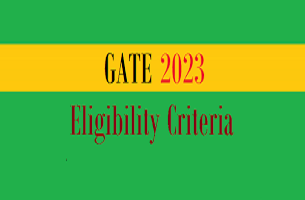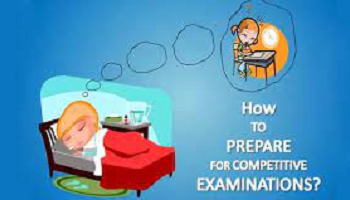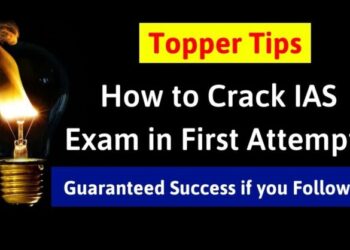Pharmacy is the clinical health science that links medical science with chemistry and it is charged with the discovery, production, disposal, safe and effective use, and control of medications and drugs. It requires huge skills in order to understand the physiological processes in a living body.
Before any drug or medicine is released in the market, it has to go through a large number of trials. Any medicine must be free of side effects to be called as a good medicine. How a drug will react in different living bodies, its reactions in various age groups are studied thoroughly.
All such things are the role of a pharmacist. He/she does research at molecular level to develop better drugs that will be able to fight a disease.
Scope in pharmacy:
The field of pharmacy is an ever rising one. Since living bodies are always facing different diseases, health issues everyday, the research to find better medicines will always go on. The pharmaceutical industry will always be one of the most demanding industry in the world. Students after completion of their 12th education can apply for diploma or bachelor degree in pharmacy courses. There is always huge demands for pharmacists in various drug industries,health sectors,research institutes,biotechnology labs,biochemical drug factories etc.
Jobs after your pharmacy degree:
Pharmacists are recruited countrywide as drug inspectors,drugs controller, hospital pharmacist,medical marketing agency,drug research persons,medical transcriptionist,regulatory manager etc.
Also a huge trend is now seen among pharmacy graduates to have their own own entrepreneurial set ups.Overall there are ample opportunities in this field at both state as well as private sectors.
Pharmacy exams in India:
Keeping the ever increasing demands in pharmaceutical sector in view, All India Council for Technical Education (AICTE) last year has taken the decision to increase the seats under diploma,bachelors and masters degree in various colleges of the country. A number of reputed colleges/universities are providing quality education to the students who aspire to take pharmacy for their higher education.The various degrees in diploma,bachelor courses as well as masters are recognized and approved by the PCI (Pharmacy Council of India).
Read More: NEET 2021: Application form, Eligibility, Exam Pattern, syllabus and more.
Who is eligible for B.Pharma?
Any candidate who has completed their 10+2 level study from a recognized school with either PCM/PCB is eligible. However, as per the college/university there may be several cut off marks criteria as well. The duration for Bachelor degree in Pharmacy is of 4 years (8 semesters). Whereas the Diploma course duration is 3 years.
Subjects in Pharmacy studies in Bachelors degree:
B.Pharmacy Subjects List for Semester 1:
- Human Anatomy and Physiology I– Theory
-
Pharmaceutical Analysis I – Theory.
-
Pharmaceutics I – Theory.
-
Pharmaceutical Inorganic Chemistry – Theory.
-
Communication skills – Theory.
-
Remedial Biology/ Mathematics – Theory.
-
Human Anatomy and Physiology – Practical.
-
Pharmaceutical Analysis I – Practical.
-
Pharmaceutics I – Practical.
-
Pharmaceutical Inorganic Chemistry – Practical.
-
Chemistry – Practical Communication skills- Practical.
-
Remedial Biology – Practical.
B.Pharmacy Subjects List for Semester 2:
-
Human Anatomy and Physiology II – Theory.
-
Pharmaceutical Organic Chemistry I – Theory.
-
Biochemistry – Theory.
-
Pathophysiology – Theory.
-
Computer Applications in Pharmacy – Theory.
-
Environmental sciences – Theory.
-
Human Anatomy and Physiology II –Practical.
-
Pharmaceutical Organic Chemistry I– Practical.
-
Biochemistry – Practical.
-
Computer Applications in Pharmacy – Practical.
B.Pharmacy Subjects List for Semester 3:
-
Pharmaceutical Organic Chemistry II – Theory.
- Pharmaceutical Microbiology –Theory.
-
PhysicalPharmaceuticsI –Theory.
-
Pharmaceutical Engineering – Theory.
-
Pharmaceutical Organic Chemistry II – Practical.
-
Physical Pharmaceutics I – Practical.
-
Pharmaceutical Microbiology – Practical.
-
Pharmaceutical Engineering – Practical.
B.Pharmacy Subjects List for Semester 4:
-
Pharmaceutical Organic Chemistry III– Theory.
-
Medicinal Chemistry I – Theory.
-
Physical Pharmaceutics II –Theory.
-
Pharmacology I – Theory.
-
Pharmacognosy I – Theory.
-
Medicinal Chemistry I – Practical.
-
Physical Pharmaceutics II –Practical.
-
Pharmacology I – Practical.
-
Pharmacognosy I – Practical.
B.Pharmacy Subjects List for Semester 5:
-
Medicinal Chemistry II – Theory.
-
Industrial PharmacyI– Theory.
-
Pharmacology II – Theory.
-
Pharmacognosy II – Theory.
-
Pharmaceutical Jurisprudence –Theory
-
Industrial PharmacyI– Practical
-
Pharmacology II – Practical
-
Pharmacognosy II – Practical
B.Pharmacy Subjects List for Semester 6:
-
Medicinal Chemistry III – Theory.
-
Pharmacology III – Theory.
-
Herbal Drug Technology –Theory.
-
Biopharmaceutics and Pharmacokinetics – Theory.
-
Pharmaceutical Biotechnology– Theory.
-
Quality Assurance– Theory.
-
Medicinal chemistry III –Practical.
-
Pharmacology III – Practical.
-
Herbal Drug Technology –Practical.
B.Pharmacy Subjects List for Semester 7:
-
Instrumental Methods of Analysis– Theory.
-
Industrial Pharmacy – Theory.
-
Pharmacy Practice – Theory.
-
Novel Drug Delivery System –Theory.
-
Instrumental Methods of Analysis– Practical.
B.Pharmacy Subjects List for Semester 8:
-
Biostatistics and Research Methodology – Theory.
-
Social and Preventive Pharmacy– Theory.
-
Pharmaceutical Marketing –Theory.
-
Pharmaceutical Regulatory Science – Theory.
-
Pharmacovigilance – Theory.
-
Quality Control and Standardization of Herbals – Theory.
-
Computer-Aided Drug Design –Theory.
-
Cell and Molecular Biology –Theory.
-
Cosmetic Science – Theory.
-
Experimental Pharmacology –Theory.
-
Advanced Instrumentation Techniques – Theory.
-
Project Work.
For Masters programme (M Pharma),there are a number of courses available for specialization like Pharmaceutics, Pharmacology, Pharmaceutical Chemistry, Pharmacognosy and pharmacovigilance.
Read More: Sri chaitanya NEET reviews : Reviews by Student for the Best NEET Coaching
Examination nationwise and statewise:
| GPAT (Graduate Pharmacy Aptitude Test) | National Testing Agency (NTA) |
| NIPER JEE | National Institute of Pharmaceutical Education and Research (NIPER), Mohali. |
| West Bengal Joint Entrance Examination (WBJEE-Pharmacy) | West Bengal Joint Entrance Examination Board |
| Uttar Pradesh State Entrance Examination (UPSEE-Pharmacy) | Dr. APJ Abdul Kalam Technical University, Uttar Pradesh |
| Odisha Joint Entrance Examination – Pharmacy (OJEE-P) | Odisha State Government |
| Maharashtra Common Entrance Test – Pharmacy (MHT CET) | Directorate of Technical Education, Maharashtra |
| Rajasthan University of Health Sciences (RUHS-P) | Rajasthan University of Health Sciences, Jaipur, Rajasthan |
| KCET (Karnataka Common Entrance Test) | Karnataka Examination Authority (KEA) |
| GUJCET (Gujarat Common Entrance Test) | Gujarat Secondary and Higher Secondary Education Board (GSEB) |
| Goa Common Entrance Test (Goa CET) | Department of Technical Education, Goa Government |
| GITAM GAT (GITAM Graduate Aptitude Test) | Gandhi Institute of Technology and Management (GITAM), Vishakhapatnam |
| MET (MAHE Entrance Test) | Manipal Academy of Higher Education or MAHE formerly known as Manipal University |
| Jamia Hamdard Pharmacy | Jamia Hamdard University (A Deemed to be University), New Delhi |
Frequently asked questions:
Ans. – Yes Government jobs are available. However, the competition is high for Government sector.
Ans. – There are two nation wide conducted examinations (GPAT and NIPER JEE) which will provide seats across various colleges in the country
Ans.- -The fees vary from college to college. Generally it ranges between 20,000-30,000 per year in Government colleges.
Ans. – There are around 1350 colleges in India giving B.Pharma degrees. Majority among them are private institutions.











